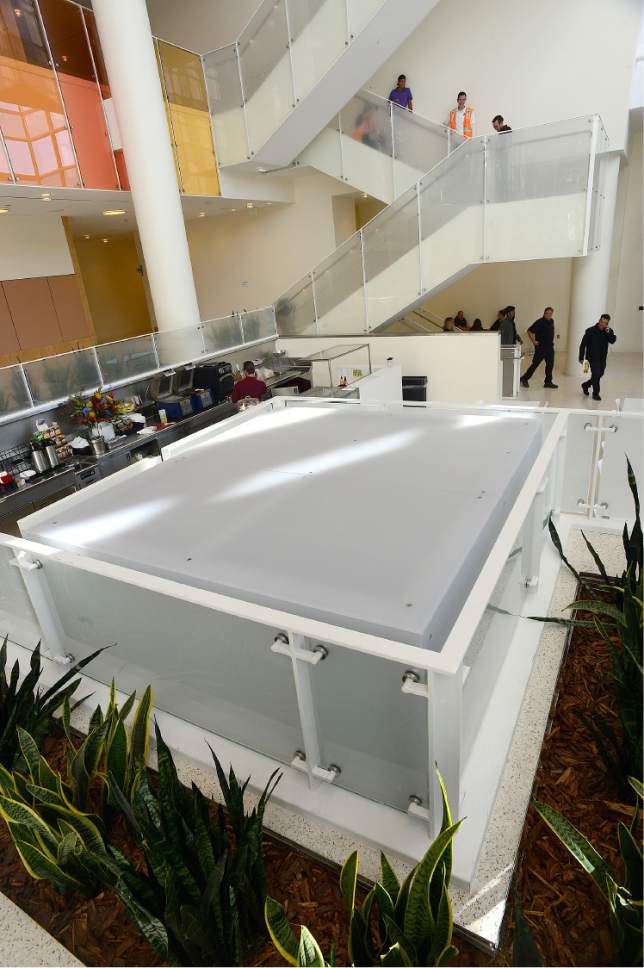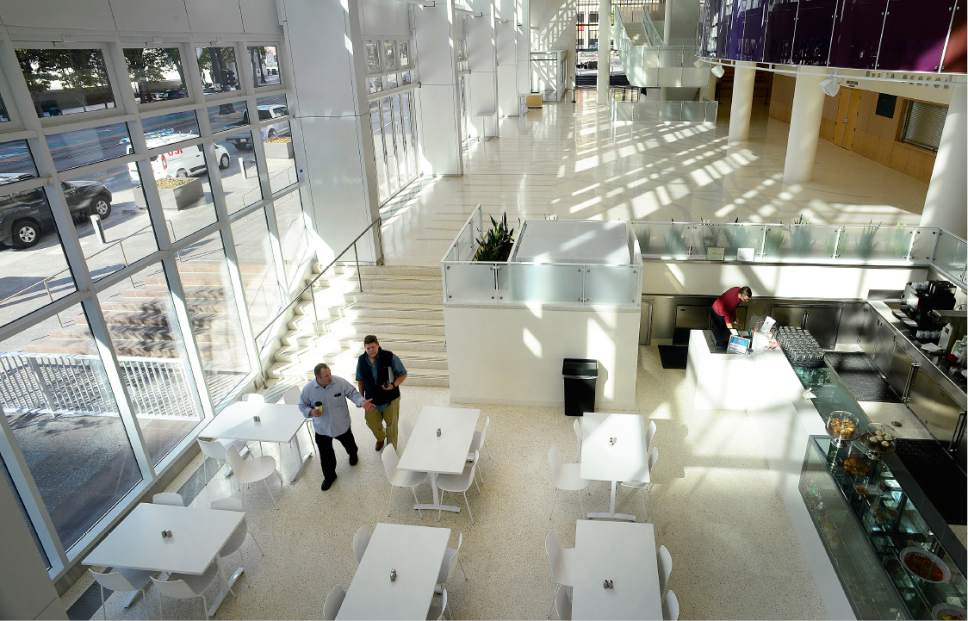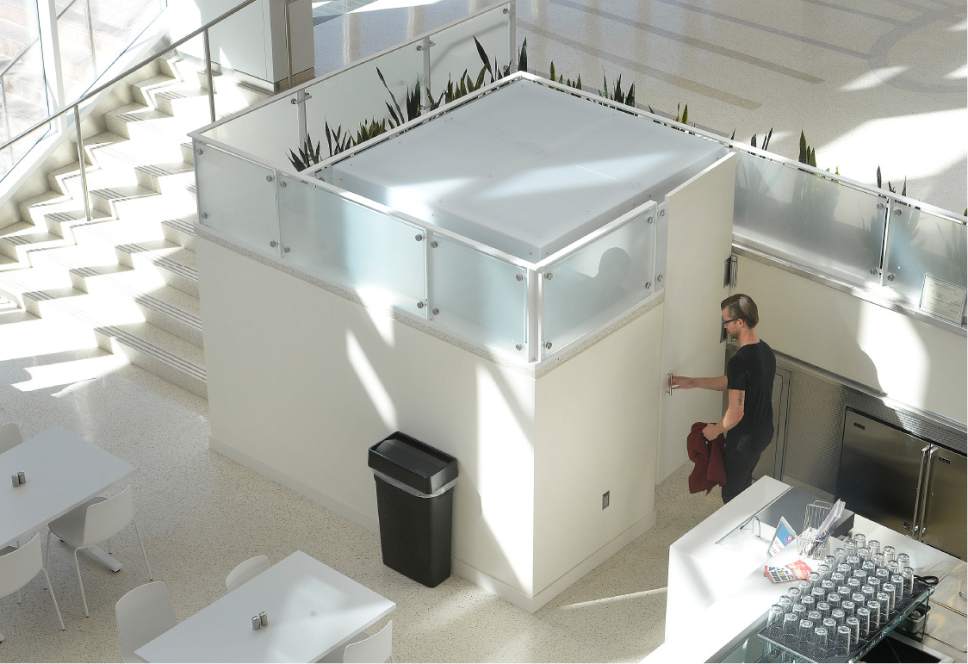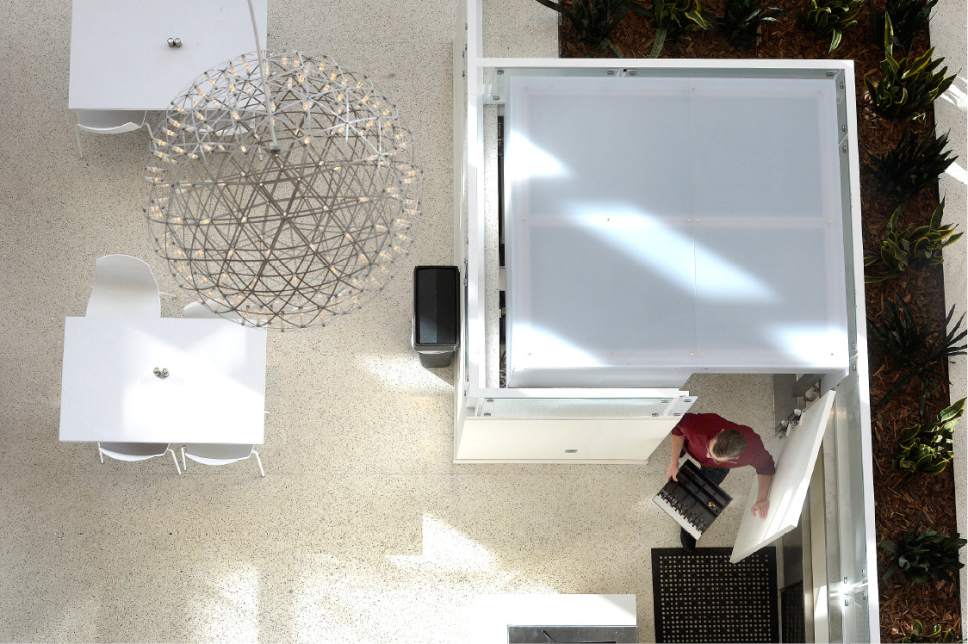This is an archived article that was published on sltrib.com in 2016, and information in the article may be outdated. It is provided only for personal research purposes and may not be reprinted.
Some Salt Lake City area restaurant owners plan to hire a lobbyist to help overturn the state's "Zion Curtain" liquor law — designed to prevent patrons from seeing the mixing and pouring of alcoholic drinks — that they contend harms businesses and customers.
The year-old Salt Lake Area Restaurant Association (SLARA), whose members include mostly small, locally owned eateries, says Utah's barrier law is more than just a quirky nuisance.
"Our member restaurants are affected by the Zion Curtain differently," association President Tamara Gibo told The Salt Lake Tribune in a recent telephone interview.
Under state law, 7-foot-2-inch-high walls, usually made of frosted glass, must be built in all new restaurants that want to serve wine, beer and spirits. The statute creates an unfair advantage because older restaurants were grandfathered into the law when it was approved in 2009, Gibo said. The inconsistencies often confuse customers who see barriers in one establishment but not another.
Gibo said she knows of several association members who want to expand or open new restaurants, but hesitate because of the restrictions and cost of building a Zion Curtain. Still others in the group consider the barrier a safety issue.
"Business owners want to be able to monitor employees, make sure they are not drinking on the job or using the meters improperly," she said. Such controls are difficult when workers are out of sight.
On the consumer side, suspicion arises among certain customers, she said, "who want to know that they are receiving the expensive booze they just ordered and paid for."
"It's a liability," she said of the law.
SLARA leaders are interviewing candidates and expect to hire a lobbyist in time for the 2017 legislative session in January.
—
Mixed feelings • As frustrating as the Zion Curtain is for owners of small local restaurants, it gets mixed reviews from the average Utah voter, according to a new poll conducted for The Salt Lake Tribune and the Hinckley Institute of Politics.
About 45 percent of Utahns favor tearing down the walls, with 26 percent "strongly favoring" their removal and 19 percent "somewhat favoring" elimination, according to the poll conducted recently by Dan Jones & Associates.
Conversely, about 40 percent of voters believe the state should keep the barriers, with 25 percent "strongly opposed" to their removal and 15 percent "somewhat opposed." The remaining 16 percent of voters are undecided.
For the poll, 823 people were interviewed via phone and online; the margin of error is plus or minus 3.42 percentage points.
Results from the poll showed a split along religious lines, with 17 percent of very active Mormons "strongly favoring" removal of the Zion Curtain and 26 percent "somewhat in favor." Among Catholics and Protestants, 33 percent and 45 percent, respectively, strongly favor removal.
—
Protecting kids • The Zion Curtain came about as part of a compromise in 2009. Lawmakers agreed to get rid of private clubs, but wanted to have a way to show consumers that restaurants were different than bars and were focused on serving food. Restaurants have often struggled to meet the requirement, from small establishments lacking space for the barrier to large venues, like the new Eccles Theater in downtown Salt Lake City, which was required to add a "Zion Ceiling" to prevent patrons from seeing the alcohol-mixing area of its lobby restaurant from balconies above.
Several attempts have been made in recent years to repeal the barrier law. All have been unsuccessful, in part, because The Church of Jesus Christ of Latter-day Saints, a key player in Utah alcohol policy, has shown an aversion to any law that it fears might increase alcohol consumption.
In turn, Utah lawmakers, many of whom are Mormon and abstain from alcohol, have been hesitant to make any massive changes to Utah liquor laws in general and the Zion Curtain specifically, saying it shields children from the glamour of bartending and lets them know that alcohol is different than soft drinks or juice.
The Zion Curtain is expected to a topic again during the 2017 legislative session.
"Yes, we are looking at the issue," said Sen. Jerry Stevenson, R-Layton, the lead legislator on Utah alcohol laws.
He said the issue is not as simple as taking the barrier requirement out of the Utah Code. Lawmakers must weigh the interests of small local restaurants — like those in SLARA — against the views of national chains and groups such as Mothers Against Drunk Driving.
"We want something that will work for everyone," he said. "We don't want to put forth a piece of legislation that creates more problems."
Conservative groups argue that state alcohol laws don't need changing, pointing to statistics that show Utah has some of the lowest levels of alcohol consumption in the country.
"Why fix what isn't broken," said Derek Monson, director of public policy for the Sutherland Institute, a conservative Salt Lake City think tank. Utah alcohol laws, he said, strike a balance between making liquor available to adults while preventing overconsumption and underage drinking.
"Utah has plenty of places where people can get drinks: restaurants, bars, taverns, liquor stores," he said, "but at the same time we are protecting people from harm."









